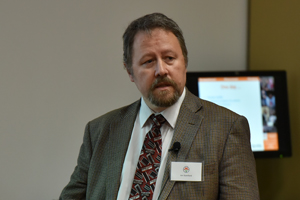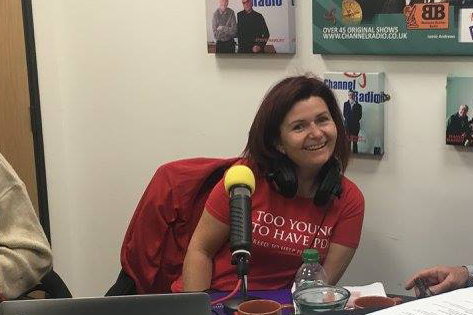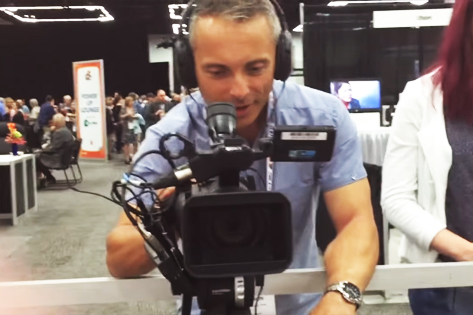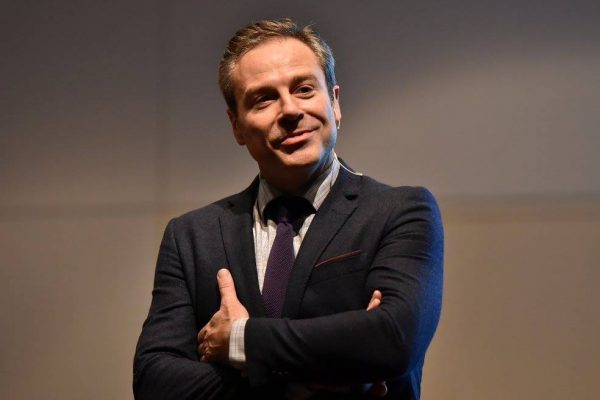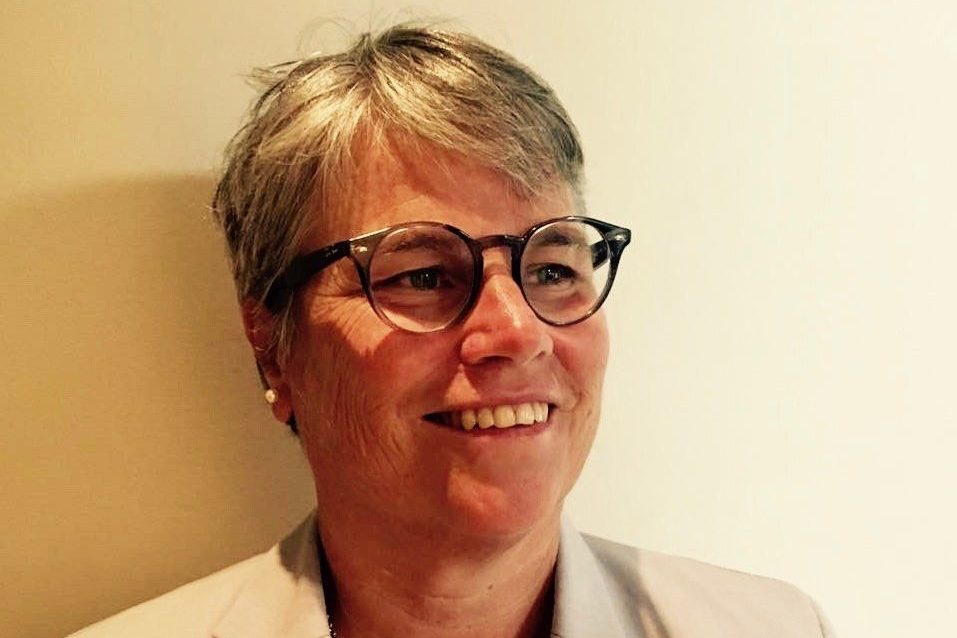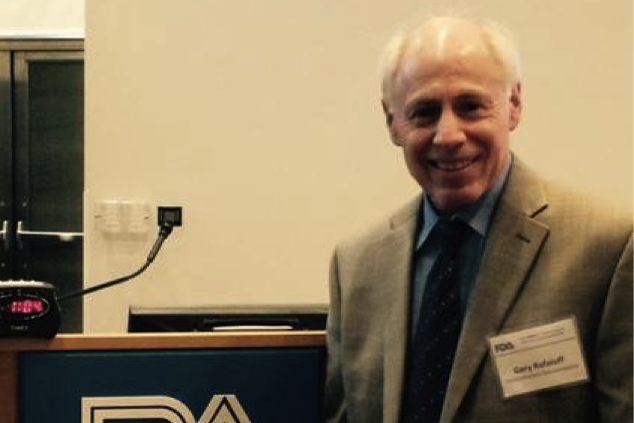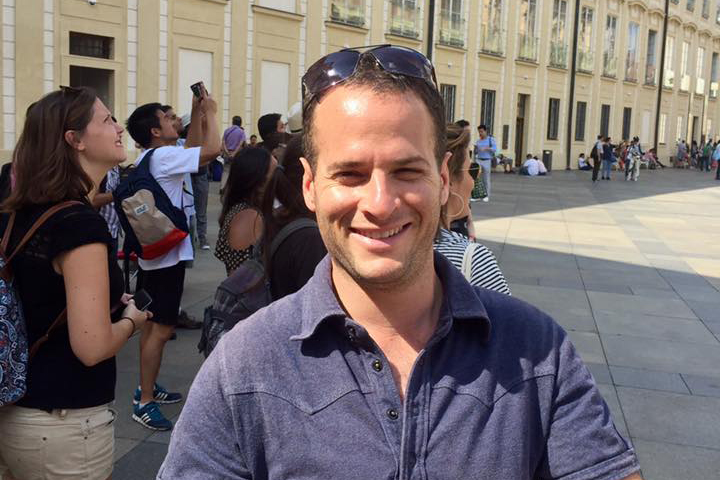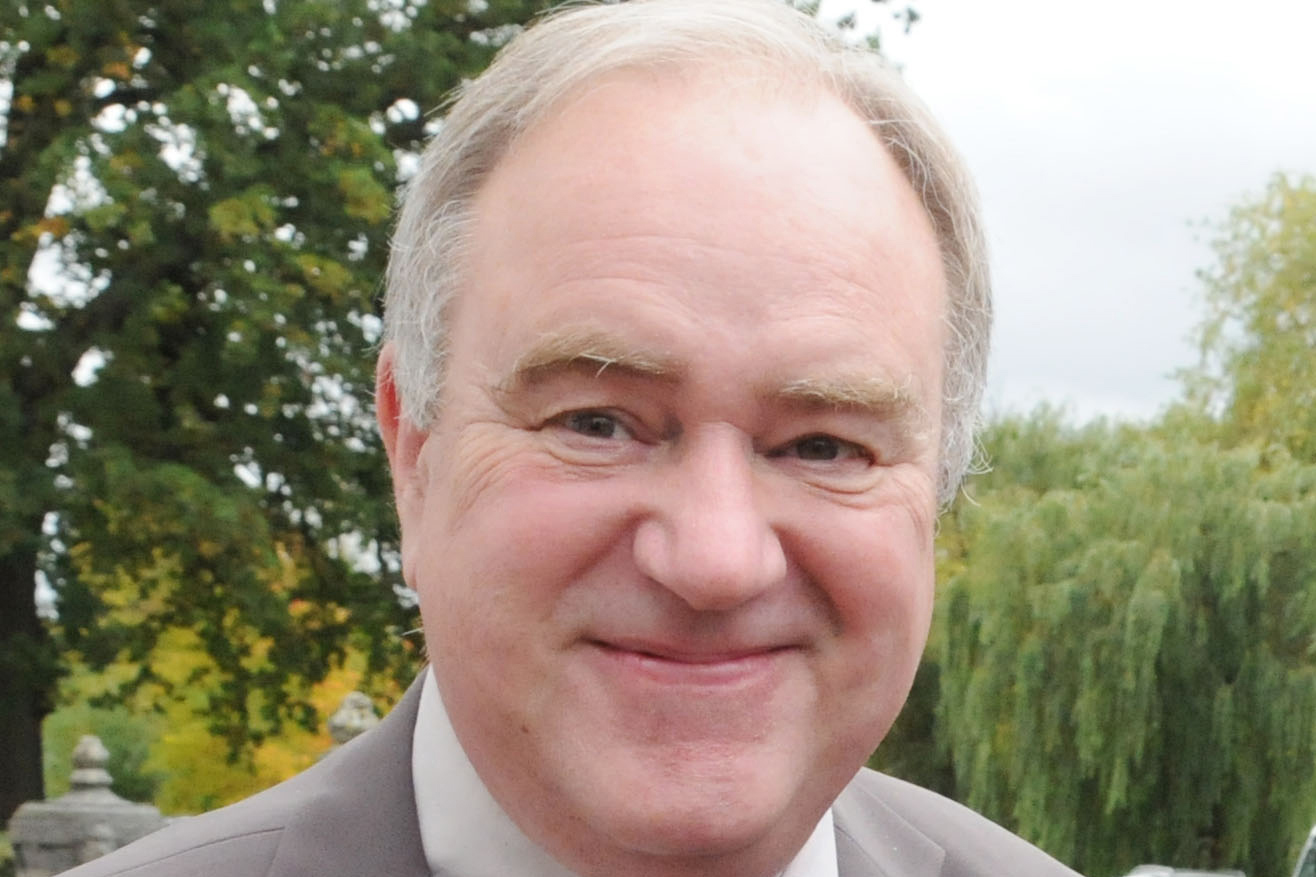Making Rapids Progress in Understanding Parkinson’s
*Following this year’s Rallying to the Challenge, we will be hosting a live international update meeting on the 1st November. This meeting is kindly hosted by the Bentley Academy in London and will be broadcast online. Please click here for more information.
Every year, the people who know the condition inside out – those diagnosed with Parkinson’s – rub shoulders with those working towards a cure at Grand Rapids, Michigan. Only the World Parkinson’s Congress has a similar emphasis in involving those with the condition. Grand Challenges in Parkinson’s and its parallel meeting Rallying to the Challenge involves and engages PwPs in the research agenda. Keep an eye on this page for updates and outcomes from this year’s meeting.
Presentations
Agenda Wednesday 26th
Non-Motor Symptoms: Impact, correlation, symptom relief, symptom monitoring
Wednesday 26th September 2018
Grand Challenges Program: Jay Van Andel Award for Outstanding Achievement in Parkinson’s Research
| 10.20 |
Welcome to Rallying to the Challenge 2018 Steve DeWitte, Soania Mathur, David Jones |
| 10.25 |
For 185 years a number of non-motor aspects of Parkinson’s were ignored – what are we missing now and can Fox Insight help us identify these aspects? Dr Brian Fiske Fox Insight – MJFF for Parkinson’s Research |
| 10.45 |
Impact of non-motor symptoms from a clinical perspective. Personalised medicine, phenotypes and moving forward? Professor Ray Chaudhuri, Kings College London |
| 11.15 |
The language of fatigue Led by Dr Jon Stamford, Leah Mursaleen |
| 11.30 |
CPP Survey findings Claire Bale, Parkinson’s UK with Richard Windle |
| 11.40 |
More about fatigue Dr Angie Kehagia and Dr Joy Duffen |
| 12.30 |
Your questions answered Drs Patrik Brundin, Nico Bohnen and Michele Hu |
| 1.30 |
Moving Evidence: The Impact of Exercise on Non-Motor Symptoms Sara Garvey, Davis Phinney Foundation and Alison Sheltrown and Jillian Carson |
| 2.30 |
Parkinson’s Patient Phenomena Survey findings: impact on PwP and their families of aspects of Parkinson’s symptoms Dan and Ginny DeWitt, Shaun Hindley, Bruce Mabee, Ken and Jill Peirce, Louis Bouma, Gloria Groner and Ron Rutowski |
| 3.30 |
Focus Group: Sleep, Cognitive, Personality and Behavioural aspects Tools needed for identification/measurement/evaluation of impact Led by: Dan and Ginny DeWitt, Shaun Hindley, Bruce Mabee, Ken and Jill Peirce, Louis Bouma, Gloria Groner and Ron Rutowski |
| 4.30 | Feedback from Focus Groups |
| 5.00 | World Parkinson’s Congress |
2018 report
Non-Motor Symptoms: Impact, correlation, symptom relief, symptom monitoring
With very many thanks to the Van Andel Research Institute and Team Spark, Grand Rapids’ Parkinson’s Community we once again hosted a terrific Rallying to the Challenge meeting in parallel with Grand Challenges in Parkinson’s. This year around 100 delegates joined us to explore the impact of non-motor symptoms in Parkinson’s, both for the individual living with the disease but also their partners, spouses and loved ones.
Brian Fiske, Senior Vice President Research Programmes at the Michael J Fox Foundation opened the meeting highlighting the range and diversity of non motor aspects of Parkinson’s and invited the audience to contribute their experiences of their condition by joining Fox Insight, the open-source surveying too.
We were privileged that the 2018 Jay Van Andel Award winner, Professor Ray Chaudhuri from Kings College London, who has championed research into non-motor aspects of Parkinson’s also addressed the meeting. He elaborated on the variety of symptoms that characterise the condition, with each person experiencing their own changeable combination of symptoms and explored the current research underway to tackle non-motor aspects of the disease.
The variety of symptoms that people experience has been an important theme for the Rallying meeting. The 2015 Rallying survey identified that fatigue was significantly impacting the quality of life for a large number of people. At this year’s meeting there was a fantastic focused discussion around fatigue. Presentations by Dr Jon Stamford, Leah Mursaleen and Angie Kehagia explored the language used to differentiate fatigue from tiredness and how that can help us better define fatigue and therefore lead towards more accurate measurement of its impact on quality of life.
This session was followed by an action packed presentation about the benefits of exercise on non-motor symptoms of Parkinson’s by local advocate Alison Sheltrown with physiotherapist, and founder of Parkinson’s Wellness Project in British Columbia, Canada Jillian Carson and Parkinson’s wellness specialist Sara Garvey of theDavis Phinney Foundation.
The meeting also explored the impact of sleep in an inspirational presentation by Canadian advocate Ben Stecher, author of https://tmrwedition.com . Ben went on to call for more voices to join the advocacy effort to change the way Parkinson’s is treated and to add urgency to the research effort.
Dr Camille Carroll from Plymouth University highlighted some of the approaches that are currently being used to objectively measure and evaluate non-motor aspects of Parkinson’s, however this is a challenging field given that each individual has their own recipe of symptoms that impact their quality of life and therefore we need a range of evaluation approaches to suit each individual and their own circumstances.
Local Team Sparks Ralliers Louis Bouma, Dan and Ginny DeWitt, Gloria Groner, Shaun Hindley, Bruce Mabee, Ken and Jill Peirce, Ron Rutowski devised this year’s survey around the impact of Parkinson’s symptoms on quality of life for the individual with Parkinson’s and their partners, spouses and families. The survey findings triggered a spirited discussion in the focus groups around the importance of communication when raising sensitive issues particularly around thinking and memory and the call for a communication tool to support conversations in a timely way.
In parallel a group explored the creation of a scale to prioritise potential therapies for clinical translation based on the needs of the patient community, which would help ensure scientists are in alignment with people with Parkinson’s. In a fitting tribute, Ralliers have suggested that it be called the “Isaacs Scale” in honour of Trust co-founder Tom Isaacs.
In summary, this year’s Rallying meeting not only highlighted the wide variety of non-motor symptoms people experience but also that these symptoms change, as does their impact on an individual’s quality of life. This variety and variability of symptoms has implications for communicating effectively about the disease not only to a PwP’s healthcare team but also to their spouses, partners and families. The focus groups led by Team Spark identified the need for a communication tool and working with the Parkinson’s Movement and CPT teams will be helping to design this in the coming months.
Agenda Thursday 27th
Non-Motor Symptoms: Impact, correlation, symptom relief, symptom monitoring
Thursday 27th September 2018
Grand Challenges Program: Jay Van Andel Award for Outstanding Achievement in Parkinson’s Research
| 9.30 |
Monitoring and measuring non-motor symptoms: the challenge Dr Camille Carroll |
| 10.00 |
Issues in Parkinson’s: Sleep disorders Ben Stetcher |
| 11.15 |
Parkinson’s Movement: explaining research, celebrating advocacy and contributing to research The Parkinson’s Movement Team: Eros Bresolin, Gaynor Edwards, Julia Jockelson and Helen Matthews |
| 11.55 |
Concluding comments Dr Soania Mathur, Steve DeWitte, David Jones |
|
12.15
12.15-45
|
Your questions answered Panel of clinicians Drs Kathleen Shannon and Ron Postuma Facebook Live Professors Patrik Brundin, Ray Chaudhuri, Viviane Lebrie and Dr Jon Stamford |
|
1.00 1.15
|
Presentation of the Tom Isaacs Award Presentation to Grand Challenges in Parkinson’s Claire Bale, Parkinson’s UK with Richard Windle |
The Stateside event, hosted by The Van Andel Research Institute (VARI) and organised by The Cure Parkinson’s Trust (who fund and support this website) took place this year on Wednesday 26 and Thursday 27 September. The theme of this year’s conferences was Non-Motor Symptoms – for many just as frustrating, if not more so, than the well-documented movement-related symptoms.
In addition to an overview of non-motor aspects of Parkinson’s, this year’s Rallying explored fatigue, exercise and sleep and this year’s survey was designed to understand the psychological impact of symptoms on people living with Parkinson’s and their families.
Taking place at the Van Andel Research Institute (VARI) and jointly hosted by Dr Patrik Brundin and his team at VARI, along with CPT, patient input is actively encouraged – very much in the style of Tom Isaac’s vision, maintained by The Cure Parkinson’s Trust.
Dr K Ray Chaudhuri was the keynote speaker at this year’s event. He and his team at King’s College London are largely responsible for highlighting this area of research.
Wednesday 26 – Thursday 27 September – Theme: non-motor symptoms.
Which advocates attended Rallying this year?:

